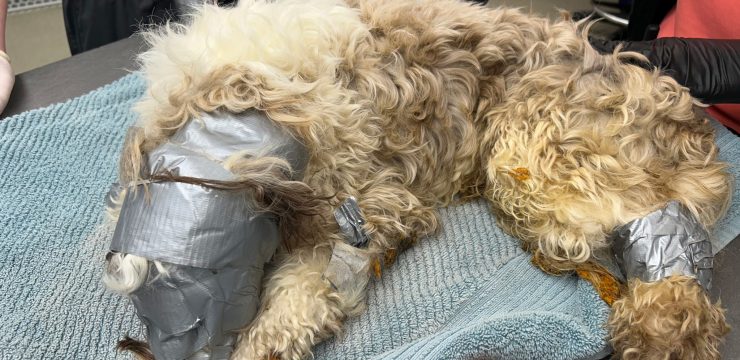For ten years, Cheryl Murray lived with a painful, growing lump on her foot—a secret she kept even from her closest loved ones. What started as a minor discomfort became a life-altering diagnosis she never expected. Cheryl, who lives in Glasgow, Scotland, first noticed the lump when she was just 15 years old. At the time, it was small and slightly uncomfortable but didn’t seem like anything serious. After a fall, a doctor assumed it was a torn ligament and recommended physiotherapy.

Trusting the advice, Cheryl didn’t think much more of it. But as time passed, the lump didn’t go away. In fact, it slowly got worse. It became more painful with each accidental bump and eventually grew to the size of a golf ball. Still, Cheryl didn’t talk about it. Even after she began dating David, the man who would later become her fiancé, she remained silent. Embarrassed and ashamed, she avoided bringing it up and continued to tell herself it wasn’t a big deal. “I was ashamed of it,” Cheryl admitted in an interview with the Daily Mail. That shame became a barrier that stopped her from seeking medical help for years. It wasn’t until she and David moved in together that hiding the lump became impossible.
David noticed the swelling and confronted her, asking what was going on with her foot. Cheryl told him the same story she had told herself—that it was torn ligaments from an old injury—but David didn’t buy it. “He could tell it was more serious,” Cheryl said. His concern and insistence pushed her to finally return to the doctor, and that decision ended up saving her life. After undergoing an MRI, X-ray, and biopsies, doctors delivered the devastating news: the lump was cancer. More specifically, it was sarcoma—a rare and aggressive type of cancer that attacks the connective tissues of the body such as muscles, fat, tendons, nerves, and blood vessels.

Cheryl was stunned. “I was hysterical. I was so stunned I couldn’t speak,” she recalled. “I felt like I had been punched in the face twice in one day.” The doctors told her that to prevent the cancer from spreading further, they needed to amputate her lower leg immediately. While the news was overwhelming, David remained by her side through every step of the process.
In a touching show of love and support, he proposed to her just weeks before her scheduled surgery. Cheryl says David gave her the strength and willpower she needed to keep moving forward. “He provided me motivation and the willpower to continue,” she said. Sarcoma is a rare form of cancer that doctors are still trying to fully understand. According to the Cleveland Clinic, sarcomas are more commonly diagnosed in adults, especially those who have had prior exposure to radiation or chemotherapy for other illnesses. The most common types include osteosarcoma, which affects bones; chondrosarcoma, which develops in cartilage; and Ewing’s sarcoma, which usually starts in the bone marrow.
Because sarcomas can appear in different tissues, symptoms often vary depending on the location of the tumor. Common warning signs include persistent swelling, visible lumps or deformities under the skin or in bones, chronic localized pain, unexplained muscle weakness, reduced mobility, or changes in walking and coordination. Cheryl’s story is a powerful reminder not to ignore warning signs your body gives you. She survived because she finally took action—thanks in large part to David’s encouragement. “If I hadn’t shown him the lump, I probably would’ve ignored it even longer,” Cheryl said. Her experience highlights the importance of trusting your instincts and seeking second opinions if something feels off. Early detection can save lives. If you or someone you know is experiencing unexplained symptoms like persistent swelling or pain, don’t wait—see a doctor. And if the first diagnosis doesn’t feel right, keep asking questions. Cheryl’s bravery and her bond with David show just how vital it is to listen to your body and lean on those who love you. Share her story—you never know who it might help.





